If you plan to travel Tunisia, then here’s 11 key things you should definitely know before you go!
From what to eat and how to find the best accommodation, through to the best way to get around, what to pack and some top tips for solo female travellers, this is my full guide to prepping, planning and enjoying your travels in this fantastic country.
While Morocco and Egypt may be stealing the lion’s share of tourists in north Africa, Tunisia’s charm lies precisely in the fact that large parts of the country remain wonderfully undiscovered by foreign tourists.
And from beaches to deserts, ancient historic sites to quaint cobbled-street towns, trust me when I say there’s a lot to discover here!
So if you’re heading to this fab country soon, take a read of my following top Tunisia travel tips and start planning your adventure there asap…
Related Posts
- Egypt vs Tunisia: Which is Best to Travel?
- Sidi Bou Said, Tunisia: Full Travel Guide
- 55 Best Things to Do in Africa
My trip to Tunisia was sponsored by the Authentic Tunisia campaign but, as always, all views are my own.
This page contains affiliate links meaning Big World Small Pockets may receive a small commission on any purchases at no extra cost to you.
#1 When to Travel Tunisia?
I really recommend travelling Tunisia in either the spring or autumn months.
Like other countries in North Africa, May June, September and October are ideal months to visit Tunisia because temperatures are still warm enough for sightseeing and the beach, but you’ll avoid the scorching temperatures of the summer.
Winter months are a great time to travel Tunisia if you want to avoid the crowds and get a real bargain, but do beware that, especially in the north of the country, it can be wet and cold during these months.
Learn more about when to visit each area of Tunisia, as well as a month by month overall weather breakdown, in this article I wrote all about the best time to visit Tunisia.
#2 How to Get to Tunisia?
Unless you’re travelling overland from Algeria (which while is possible, is certainly not common!), the vast majority of travellers arriving into Tunisia will come by air.
There’s several international airports in this country, but the main ones are…
#1 Tunis-Carthage – best if you want to begin your travels in the capital Tunis or nearby Sidi Bou Said
#2 Enfidha-Hammamet International Airport – best option if you’re heading for a beach holiday at the Hammamet resort
#3 Djerba Zarzis International Airport – located on the beautiful island of Djerba
#4 Monastir Habib Bourguiba International Airport – situated near the coastal city of Sousse
#5 Sfax Thyna International Airport – best for exploring the south of the country
The great news is that from most European cities, flights to Tunisia only take around 2-3 hours.
As always I use Skyscanner to find the best prices.
#3 How Best to Travel Around Tunisia?
In the Tunis-Carthage area, there is a handy metro and regional light train service that gets you between the main areas.
The Bolt rideshare app (like Uber) also exists in this area and is a great idea for getting around without having to worry about language barriers and confusing prices!
Beyond that, long distance trains service major cities in Tunisia including Sousse, El Jem, Sfax, Bizerte and Gabès.
For smaller towns, buses or shared minivan taxis, known as louage, are common modes of transport.
Bookaway is a great site for booking train, bus and private transfer options in Tunisia.
Public transport can be a bit patchy here sadly, so isn’t always ideal for using if you’re on a short itinerary and want to explore a lot.
As such, I really suggest hiring a car to explore this country – especially the north and east regions – and highly recommend Discover Cars for the job.
Alternatively, if you feel more confident travelling Tunisia as part of a group, or with a guides, check out these top Tunisia tours.
#4 How Long to Travel Tunisia For?
I really recommend a minimum of 7 days to travel Tunisia.
Tthis will allow to you to enjoy a couple of destinations located close to each i.e. Tunis, Carthage, Bizerte and Dougga.
If you want to travel more widely across the north of country, including exploring fab destinations such as Al-Huwariyah, Sousse and Zaghouan, then I suggest at least 10 days for your time in Tunisia.
Check out this epic 10 day itinerary I wrote for the north of Tunisia for more ideas.
If you’d also like to explore the south of Tunisia, including the islands of Djerba and some of the key Star Wars sites in the desert, then you’ll need to allow at least 2 weeks for your travels in this country.
#5 What to Pack for Your Tunisia Travels?
What many people don’t realise is that temperatures in Tunisia can be fresh across the country even in the spring and autumn months.
This is especially true in the more mountainous north of the country, but even in the desert at night it can get cool at these times.
As such, I certainly advise bringing some warmer layers with you, including a wind and water proof thin jacket, as well as a denim jacket and a couple of warm jumpers or fleece.
Trainers or sneakers are a great idea as well, so you can enjoy sightseeing and some active pursuits in this country, and don’t forget some longer trousers for cooler days as well.
For beach days in Tunisia, you’ll need swimwear, sunscreen, sunhat and a sarong, while for deserts and religious sites, thin light clothing that covers the knees, chest, shoulders and upper arms is required.
Outside of these items, don’t also forget a good day pack, a filter water bottle, a good camera, a decent guidebook and an Arabic or French phrasebook.
Learn more in this complete Tunisia packing guide I wrote.
#6 Travel Insurance for Tunisia
World Nomads offers simple and flexible travel insurance. Buy at home or while travelling and claim online from anywhere in the world.
Alternatively, if you’re a long-term traveller, digital nomad or frequent remote worker seeking travel health cover, check out Safetywing’s Nomad Insurance policies.
#7 Best Things to Do in Tunisia
As most people are aware, Tunisia is filled with some fantastic beaches and stunning stretches of the Sahara, so if you want to get a good dose of sun, sea and sand (especially outside of the peak summer months), this country makes a great choice!
But did you know that Tunisia also offers tons of great stuff to do away from these classic pursuits, including a huge range of active and historic attractions.
Heading to ancient UNESCO-listed sites, such as the Carthage ruins, El-Djem amphitheatre, Dougga archaeological site and Kairouan’s Grand Mosque are some great examples, but between these you can also enjoy a range of outdoor adventures such as kayaking, climbing, caving, cycling, hiking, sailing and diving.
My favourite spots for outdoor activities in this country include the region of Cape Bon, Zaghouan and Siliana.
The latter of these also boasts an amazing array of traditional craft workshops with local women, from cooking to weaving.
Learn more about all these in this list of top 21 things to do in Tunisia.
#8 Is Tunisia Safe to Travel?
I found Tunisia incredibly safe to travel and never felt hassled, watched or pestered when adventuring here, even as a solo female.
In smaller towns especially, I felt comfortable wandering around in the evening and, generally speaking, found the country to be more liberal than other countries I’ve visited in North Africa.
In particular, alcohol was available in hotels across the country, and I found wearing three quarter-length trousers with singlets and a thin scarf to be totally adequate.
While there has been some events that have targeted tourists in the past, in general, I’d say Tunisia feels very safe to travel as long as you follow the usual common sense precautions.
Taking a SIM card is a great way to feel reassured when travelling in less familiar parts of the world too – it’s super handy for Google maps, Whatsapp and Rideshare apps, all of which help keep you safe.
aloSIM is a great solution as you can buy it online before you arrive and then ensure you’re connected as soon as you touchdown in Tunisia.
#9 Is Tunisia Expensive?
I found Tunisia incredibly cheap to travel, in fact I’d rate it as one of the cheapest countries I’ve ever been to (probably only behind Armenia, Georgia, Egypt and Turkey).
Food here is very affordable, as is accommodation, and getting around via public transport costs next to nothing.
As nightlife isn’t a big deal in this country (it’s actually non-existent in many towns!), you won’t spend much on alcohol or going out in the evening here.
The things you will spend a bit more on however are flights to the country (sadly no budget airlines fly here), as well as car hire and tours if this is how you choose to get around the country.
At the most basic end of things, you can easily travel Tunisia on $50 USD a day.
At the top end (eating in fancy resort restaurants and staying in 5* hotels), you’re looking at $300 USD+ a day.
And when it comes to spending money in Tunisia, you want to ensure you’re not being charged overseas transaction fees or getting poor exchange rates when using your card here, which is why I always take my Wise card away with me wherever I travel.
The easy way to spend abroad with real exchange rates, no markups and no sneaky transaction fees, you can use your Wise card just like a debit card in Tunisia… and it links easily with Google and Apple pay – sold! Grab yours here.
#10 Where to Stay in Tunisia?
While Tunisia doesn’t have any hostels, it does however have a good selection of hotels and resorts across its main cities and resort areas.
For the best accommodation outside of these major destinations however, I high recommend the network of traditional guesthouses known as “dar”.
These are homestay like set-ups, usually in a traditional Tunisia home or guesthouses.
Small and boutique, they generally feature a few rooms, modern comforts and tend to offer homecooked meals in the evening, as well as breakfasts in the morning, which makes them even better in my opinion!
I really loved staying in these Dar properties across Tunisia because they all give a wonderful sense of the culture of this country, as well as comfortable and unique stays.
My top picks include…
Dar Villa Zembra in Al Huwariyah
Message these accommodation choices direct through the Instagram links above for the easiest booking process – it’s really hard for small Tunisian business to register with Booking.com or Airbnb FYI, so Instagram is the best way to book direct and get the best prices.
#11 Food and Drink in Tunisia
If you weren’t in the know about Tunisian food, then you’re in for a great surprise when you travel this country, because it’s honestly fantastic!
Spicy, fresh and delicious, a huge amount of food is produced in this country, which makes for a wonderful culinary tradition and almost everywhere you adventure here, you’ll get to enjoy seriously great meals.
With most Tunisian food containing either meat or fish, you’ll need to make sure you specify you don’t want either if you’re a vegetarian, but this is simple to do and most places are very happy to cater for non-meat and fish eaters I found.
Bread is a huge staple here (so non-gluten folk beware!) and spice is too, with homemade harissa being heaped on pretty much every meal… much to my delight!
Most meals are a few course long – soup, then salad, then main, then fruits, the tea and cakes! – and you’ll quickly learn Tunisian meal sizes are not small, so you have been warned!
As a majority Muslim country, alcohol is not commonly served in Tunisia and most meals are accompanied by water and finished with sweet tea.
Alcohol is not easy to find across the country, but can be sourced in tourist-orientated restaurants and hotels, which are found in most of the major towns and cities.
Tourist-dominated areas, as such as the resort of Hammamet, have lots of hotels with bars for alcohol-seeking holiday makers.
You can’t drink the tap water in Tunisia, but bringing a Water To-Go bottle with you, will allow you too safely!
Learn more about these amazing water filter travel products here.
Just enter your email address below and I'll send it to you for FREE!
Information will be sent to the email provided above
PIN IT TO PINTEREST!
So there you have it, my top travel Tunisia tips!
If you’re looking to get off the beaten track in North Africa and away from the tourist crowds of Egypt and Morocco, then this country is for you!
Have any questions about travel in Tunisia still?
Then don’t hesitate to drop them into the comments box below and I’ll get back to you…

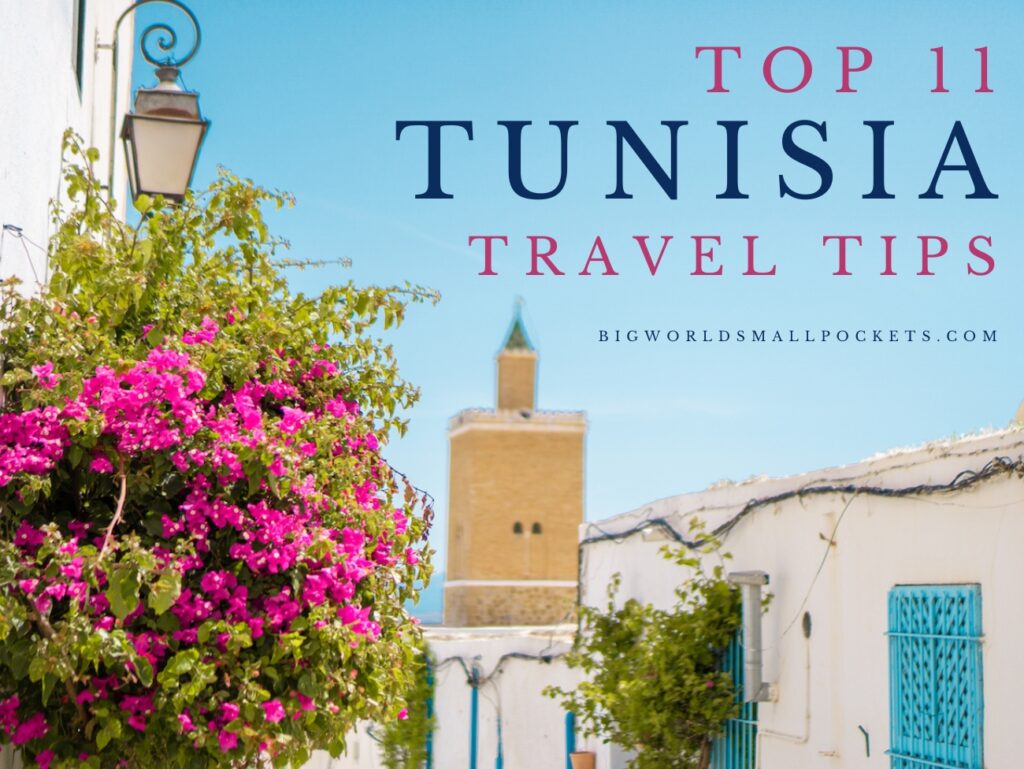

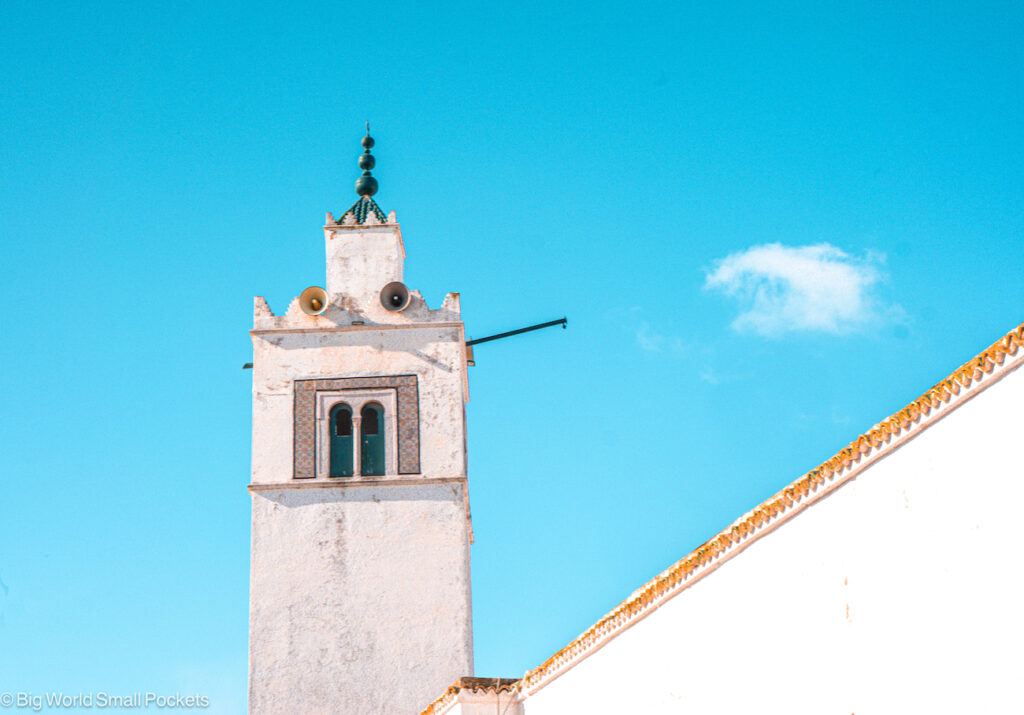
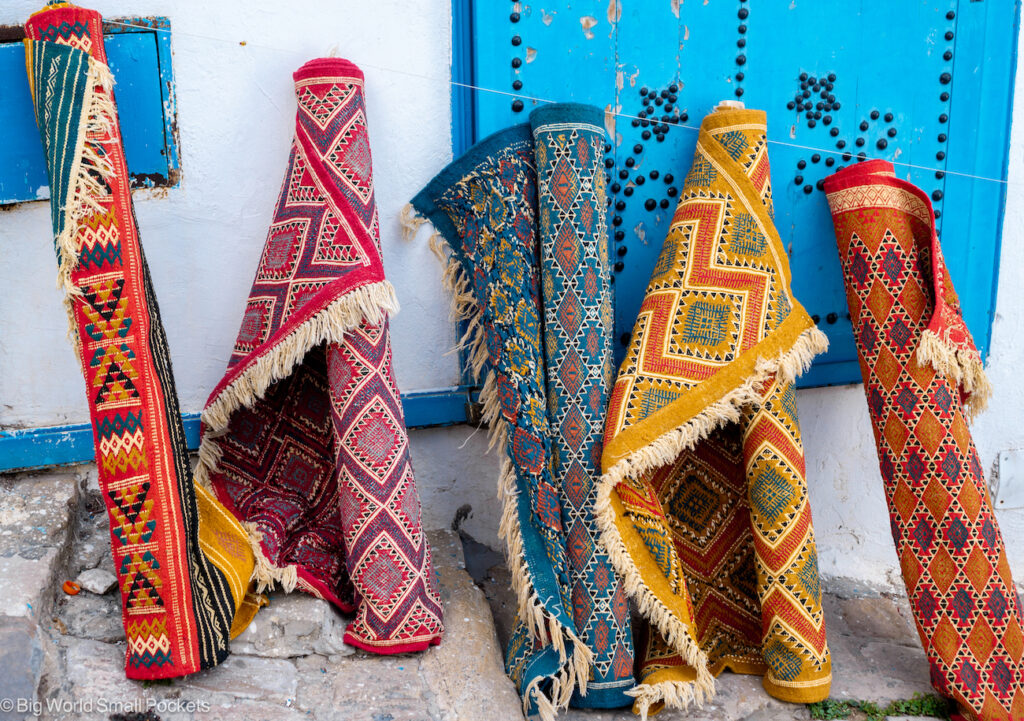
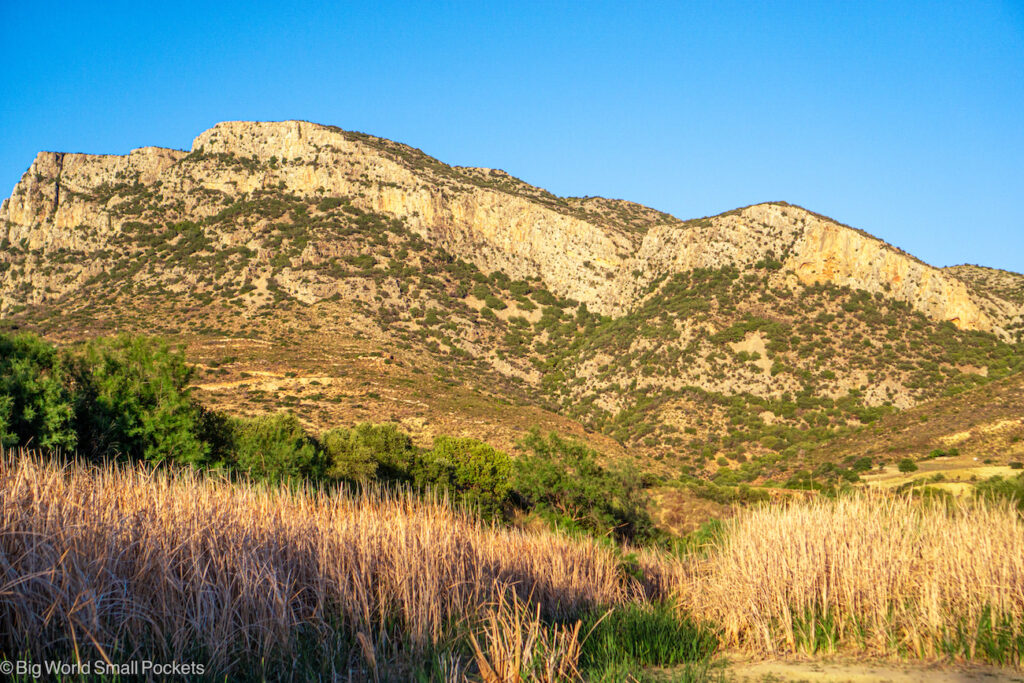

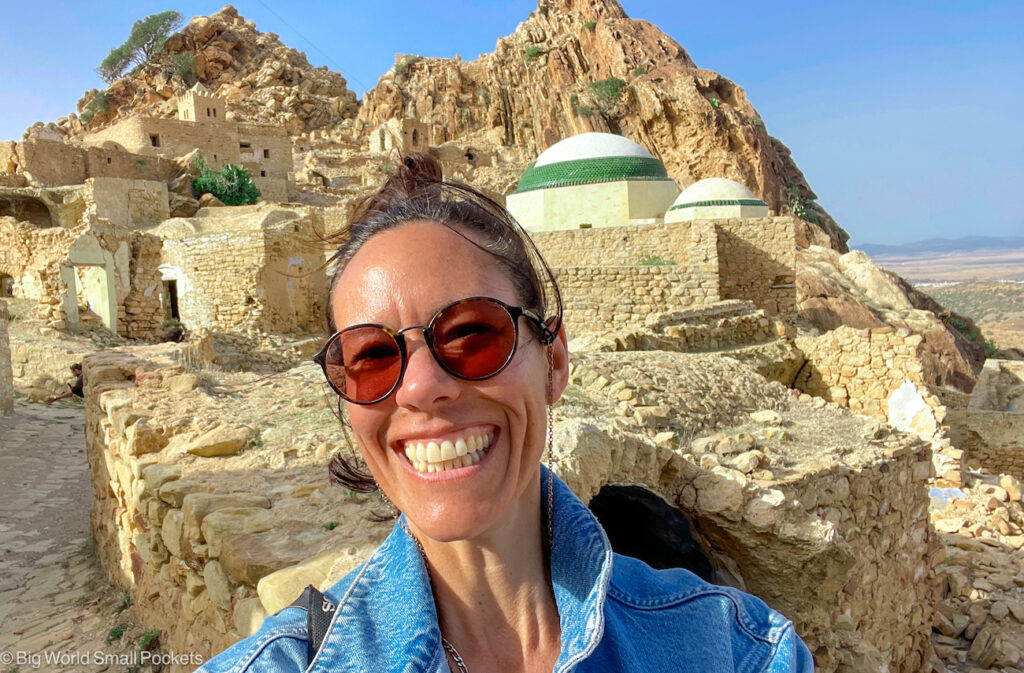

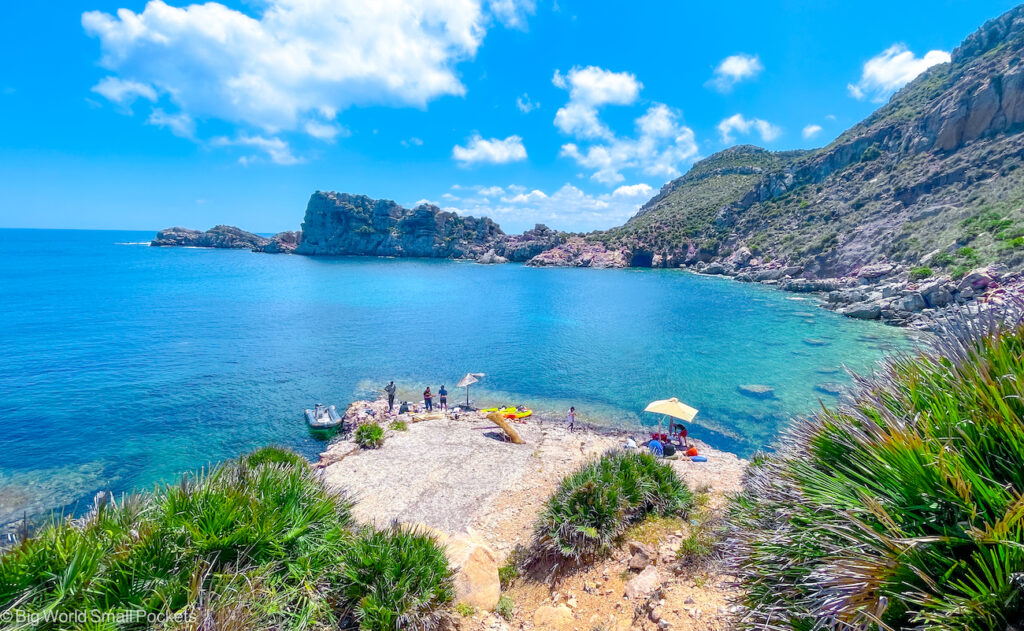
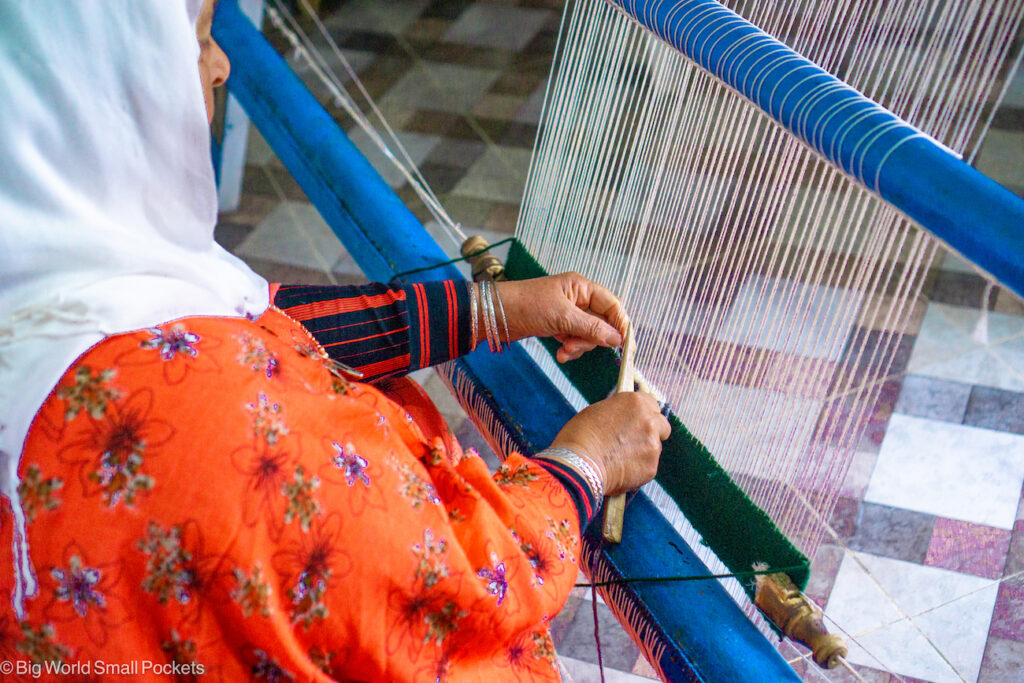
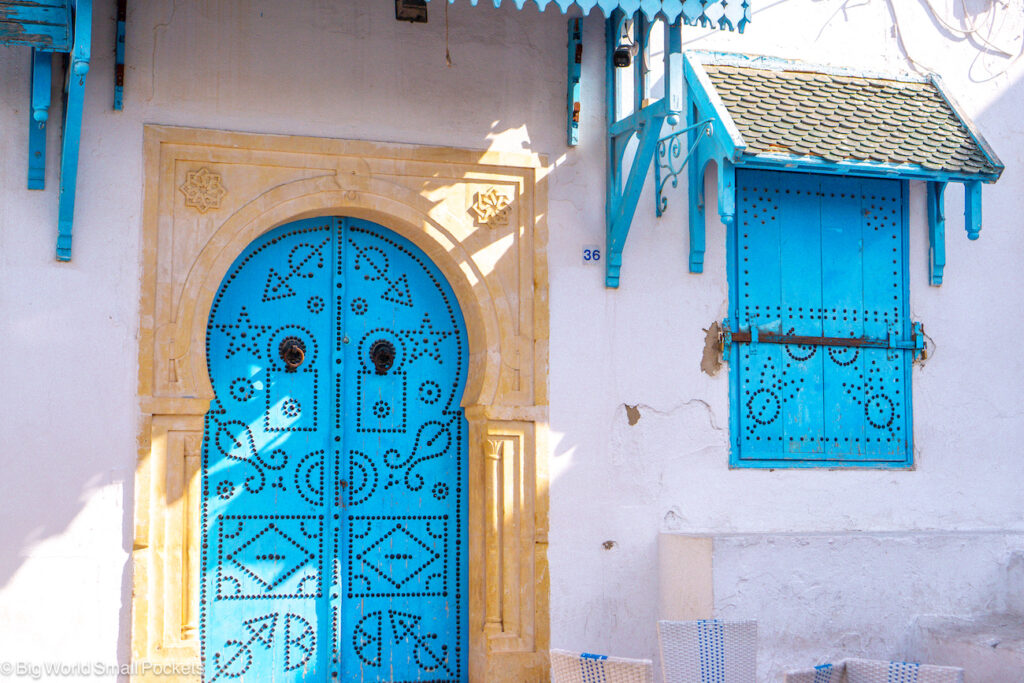
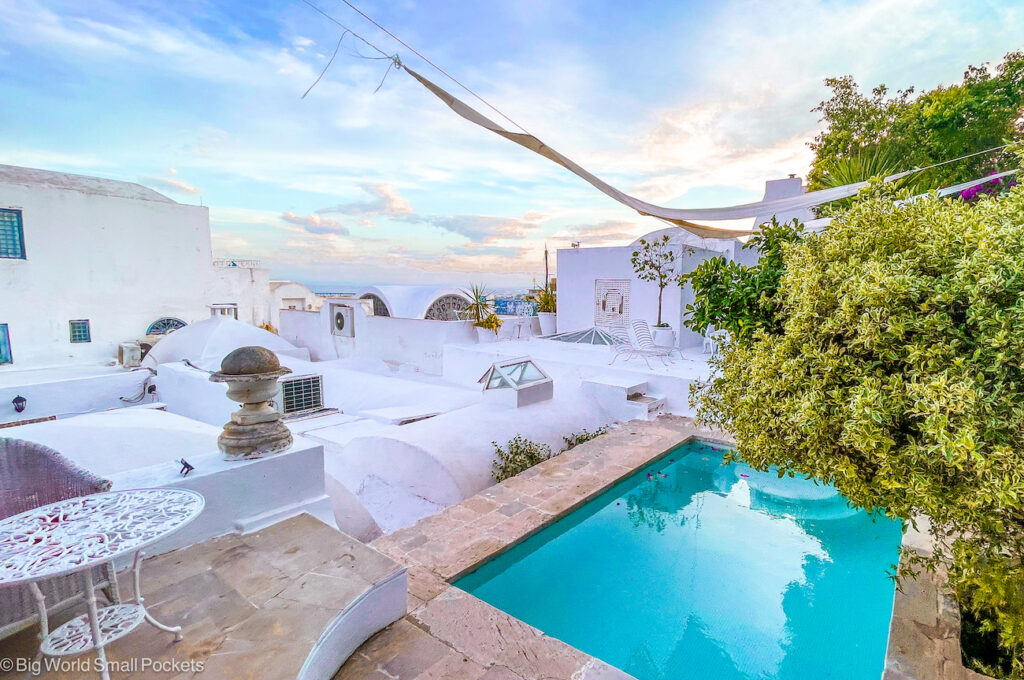
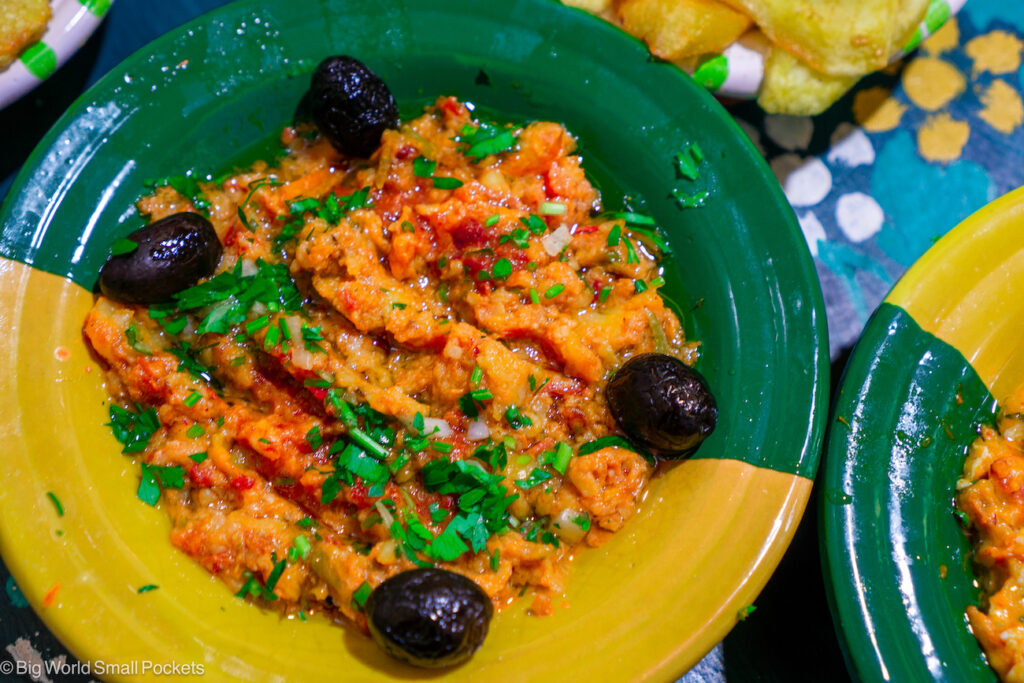
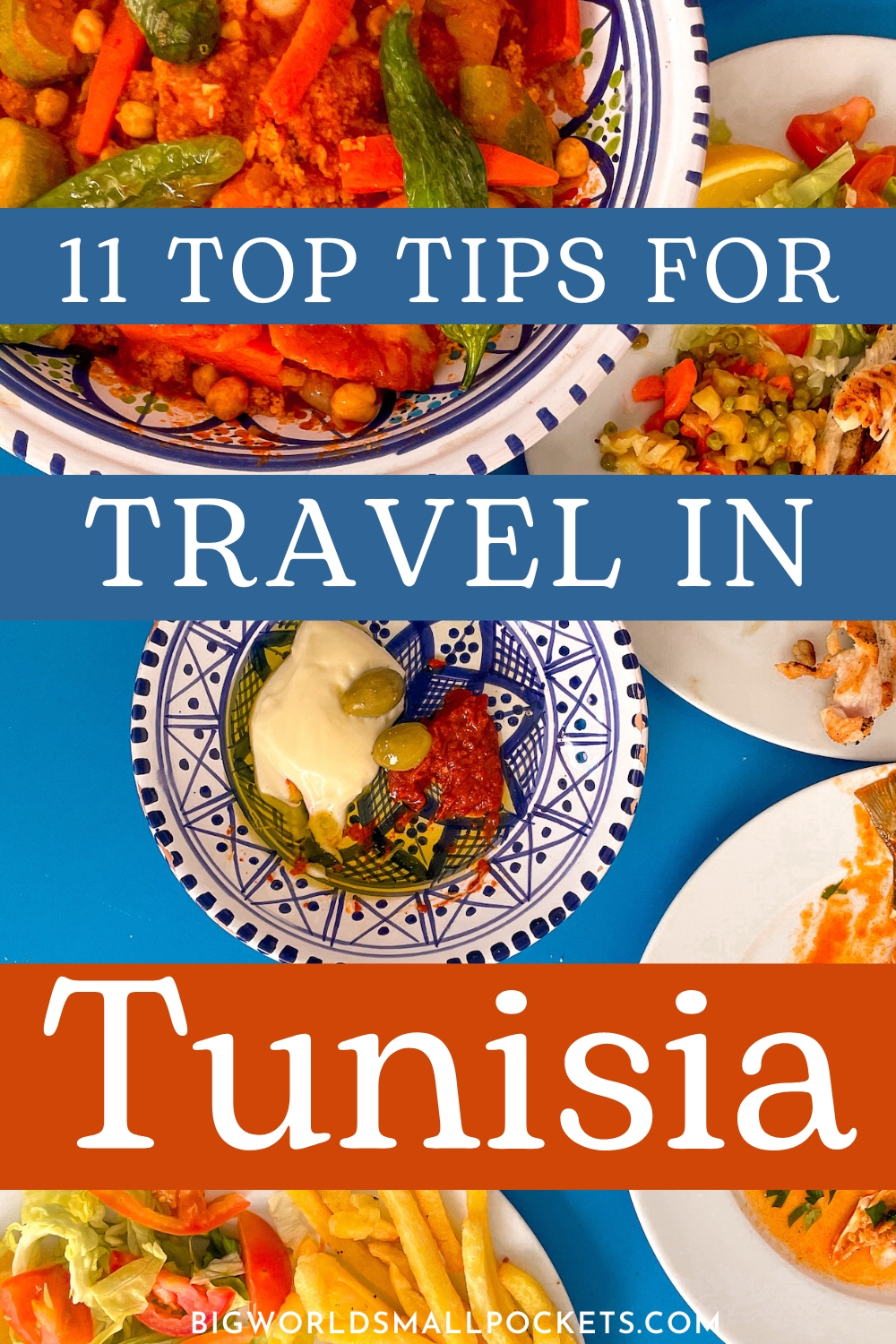
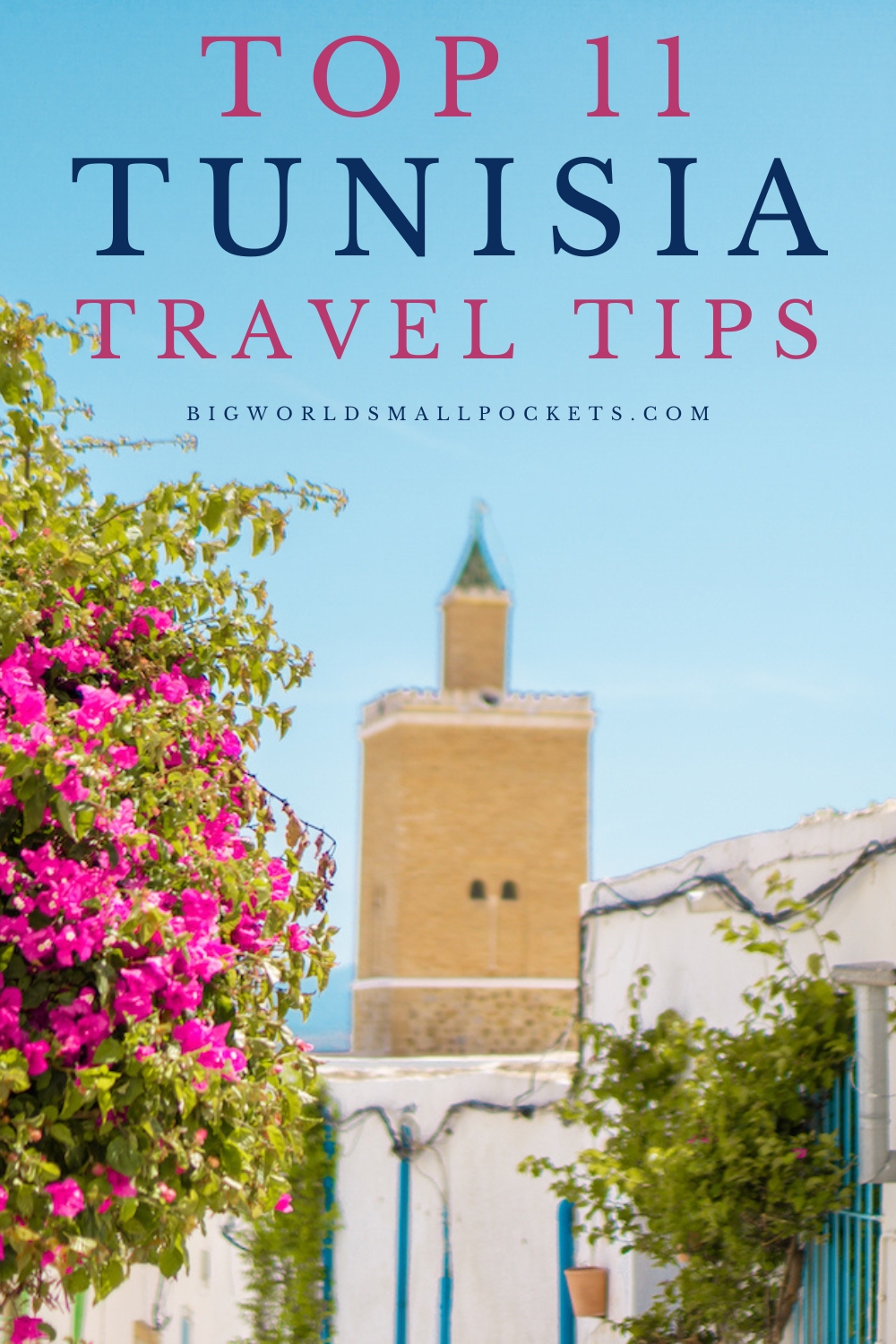
Such a remarkable country. Thanks for all the tops and great images!
Definitely going to add it to my bucket list.
Safe travels 😉
Donovan
Ah so fab to hear this Donovan! Defo get Tunisia on your bucket list! Happy travels and best wishes, Steph 🙂